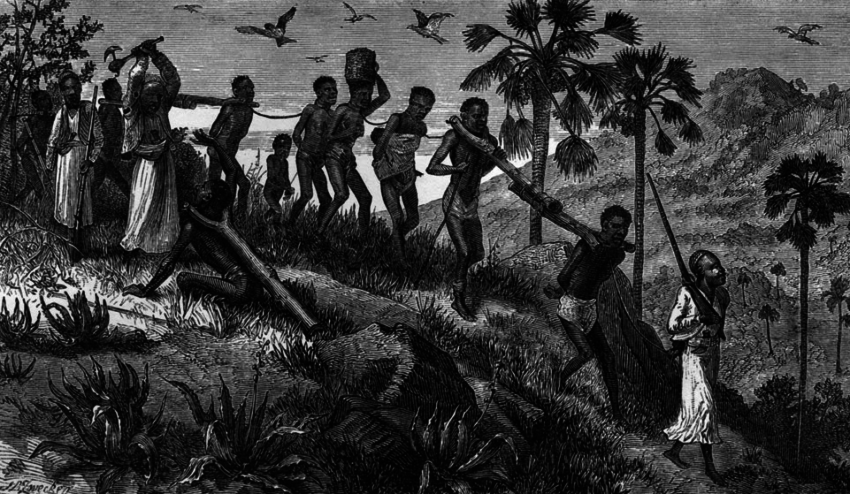
Is there a sinister story behind the Portuguese stage design? Portugal wants to celebrate their history of one of the earliest world nautical super powers. But, there is another side to their history…
This year Portugal won the Eurovision Song Contest for the first time in history. Salvador Sorbal’s victory in Kyiv ended the longest winless run by a country in the Eurovision history – a staggering 53 years. His song Amar pelos dois which was written and composed by his sister Luisa, was highly praised for its simplistic charm and allowed Portugal the honour to host the event in 2018.
Last month the Portuguese broadcaster announced that next year’s contest will be nautical themed with the slogan All Aboard! and earlier this week we were given a sneak peak of the stage design. Stage designer Florian Weider described how the stage was designed to look like the hull of a ship. He explained that this was “mainly due to the Portuguese sailor men, who traveled the seas with courage and outstanding skills of navigation.” He added that “The rich history of the Portuguese as a maritime nation reflects, without any boundaries, all of the values that make the Eurovision Song Contest unique today. Portugal and especially Lisbon are historic melting pots enriched by the impressions of newly discovered cultures that were brought back to the home port.”
Portugal’s black history
However there were a few eyebrows raised when the announcement was made this week. As there is a somewhat more sinister history behind the Portuguese stage design.
In the 15th century, Portugal had one of the largest empires in the world including the first colonial empire. They were pioneers of the sea, using and developing the best navigational and cartography tools. Which fits in well with the four inspiration points behind the stage design: Navigation; Sea; Ships & Maps.
But during this they were also pioneers of the transatlantic slave trade, where it has been documented that Portuguese sailors began to kidnap people from the west coast of Africa taking those that they enslaved back to Europe by ship. Later, instead of kidnapping, the Portuguese traded guns and ammunition for slaves.
Lisbon, next year’s host city, was the major port involved in the Portuguese slave trade. From here, ships went to West Africa and took enslaved Africans across the Atlantic Ocean to the Portugese-owned colony of Brazil. It is estimated that by the early 16th century as much as 10% of Lisbon’s population was of African descent. Of course, Portugal were not the only country to engage in the slave trade. They were subsequently followed by fellow European countries including the British, French, Spanish and Dutch empires.
Historians still debate exactly how many Africans were forcibly transported across the Atlantic during the next four centuries. A comprehensive database compiled in the late 1990s puts the figure at just over 11 million people. Portugal abolished slavery fully in 1896.
Similar controversies in themes
Portugal are not the first country to have a controversial theme. Last year, Ukraine used the slogan Celebrate Diversity as their theme when they hosted the competition for the second time. Usually such an empowering slogan would be welcomed with open arms. However, it seemed to many extremely contradictory when the country had such an unwelcomed attitude towards LGBT and ethnic minorities.
One could argue that there is no correlation because Portugal abolished slavery over 100 years ago and have become a well respected country and considered one of the most peaceful in the world, but we shouldn’t forget the past.




















